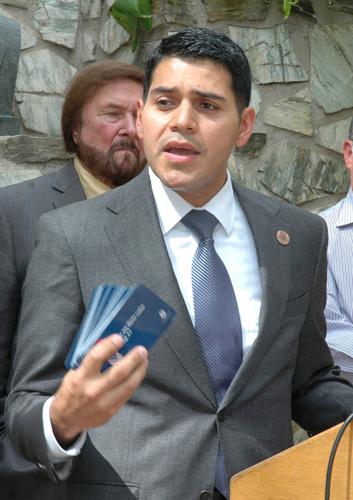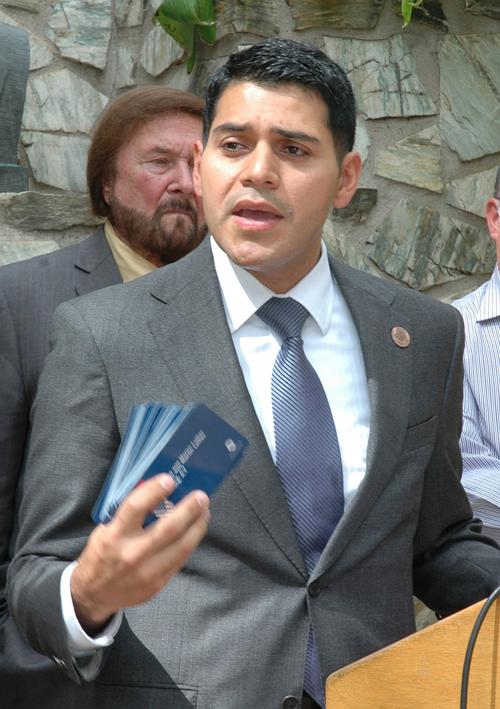PHOENIX — State senators voted 16-14 Wednesday to require judges to void citizen-backed initiatives if they are not in “strict compliance” with every requirement of Arizona election law.
HB 2244, approved by the Republican-controlled Senate with only one GOP lawmaker dissenting, would scrap existing laws and long-standing court rulings that say groups seeking to create statutes at the ballot box need only “substantial compliance” with the law.
That has been based on findings by judges that the intent of circulators and signers was clear and that voters were not deceived.
Sen. Martin Quezada, D-Glendale, said the changes will make it more difficult for groups to get their questions before voters.
He said it means that technical violations would void otherwise legitimate petition drives. And Quezada sought to narrow the scope of the legislation.
For example, Quezada proposed that a petition could be voided if the text of a ballot measure submitted to the secretary of state is not identical to what’s being circulated. But other errors, like stapling a copy of the text to the petition instead of having it on the petition itself, would be judged under the looser “substantial compliance” law.
That proposal was rejected.
But Republicans were more sensitive to criticism that adopting a “strict compliance” requirement could lead to invalidating an initiative solely because the printed margins are too narrow or the size of the lettering is too small on the petitions.
They agreed to an amendment by Sen. Steve Montenegro, R-Litchfield Park, requiring the secretary of state to prepare a sample initiative form. It spells out that circulators are presumed to be strictly complying with the law if they use that form.
Montenegro said this should take care of problems that can occur when initiative backers create forms but reproduce them using a printer or copier that might spit out versions that don’t meet those margin and typeface mandates.
“If any committee goes on that site, downloads that form, uses that form, they’ll have ‘safe harbor’ because they are strictly complying to what that initiative petition should look like,” he said.
Those changes, however, were insufficient to satisfy Democrats who said this bill — along with two others being pushed by Republicans — is simply an attack on the right of voters to propose their own laws.
Sen. Steve Farley, D-Tucson, said the framers of the Arizona Constitution created the initiative process to ensure voters have the opportunity to act. He argued that quashing ballot efforts because they don’t meet certain technical requirements violates that right.
“I don’t care if this is scrawled on the back of a piece of bark peeled off a cottonwood tree,” Farley said. “I want these petitions to be accepted if they are genuine electors,” he continued, arguing that he believes the measure will be found unconstitutional.
Sen. Sylvia Allen, R-Snowflake, however, said the additional requirements are necessary.
She said the 1998 Voter Protection Act bars lawmakers from repealing or significantly altering anything approved at the ballot. That constitutional measure, approved by voters, followed a decision by lawmakers the prior year to effectively repeal a 1996 law legalizing the medical use of marijuana and other otherwise illegal drugs.
“There is no way now to protect the people if there is unseen consequences in initiatives that are passed,” Allen said.
“It is completely false,” Quezada responded.
He said lawmakers, with a three-fourths vote of both the House and Senate, can amend voter-approved measures to fix technical problems. The only requirement is that the change “furthers the purpose” of what voters approved.
HB 2244, which now needs House approval, is part of a three-bill package being pushed by the Arizona Chamber of Commerce and Industry and other business interests in the wake of the decision by voters last year to increase the state minimum wage immediately to $10 an hour, going to $12 an hour by 2020.
HB 2404, forbidding paying petition circulators on a per-name basis, already was signed by Gov. Doug Ducey.
And SB 1236, awaiting debate, would make the organizers of initiative drives liable for fines for violations of election laws committed by petition circulators.







